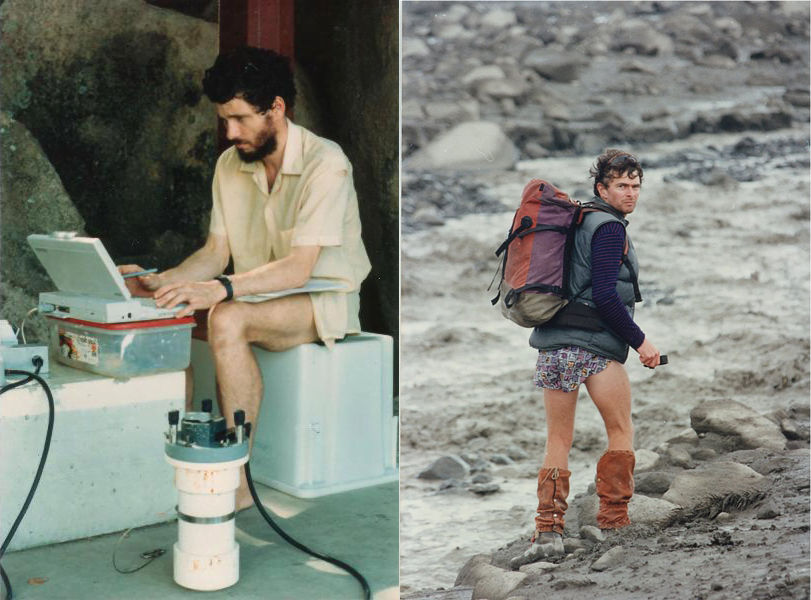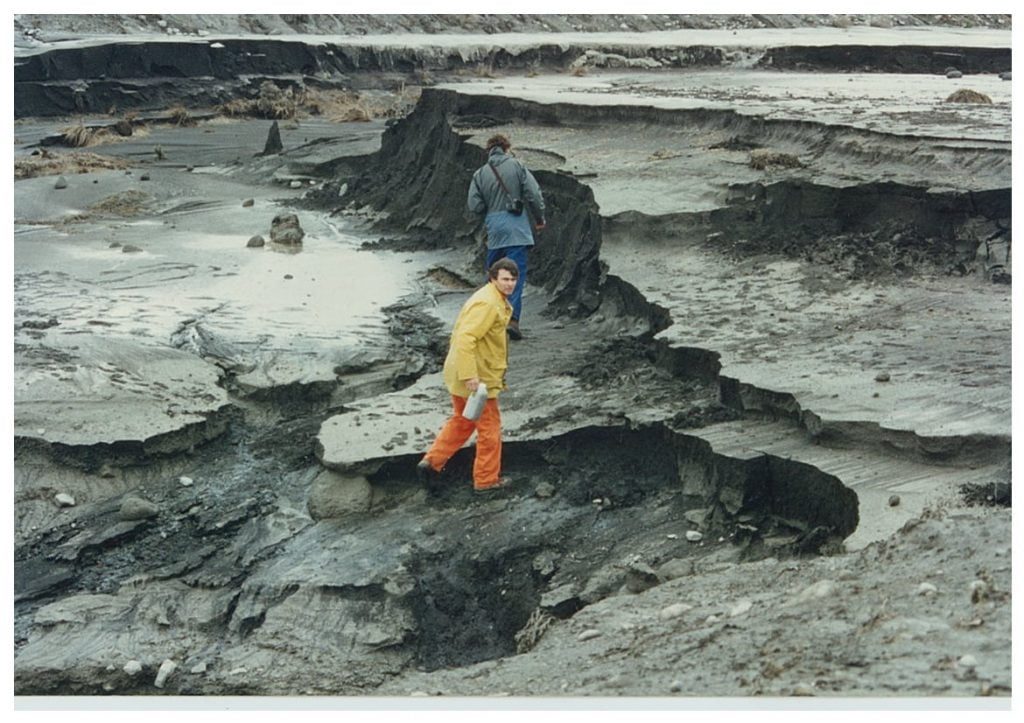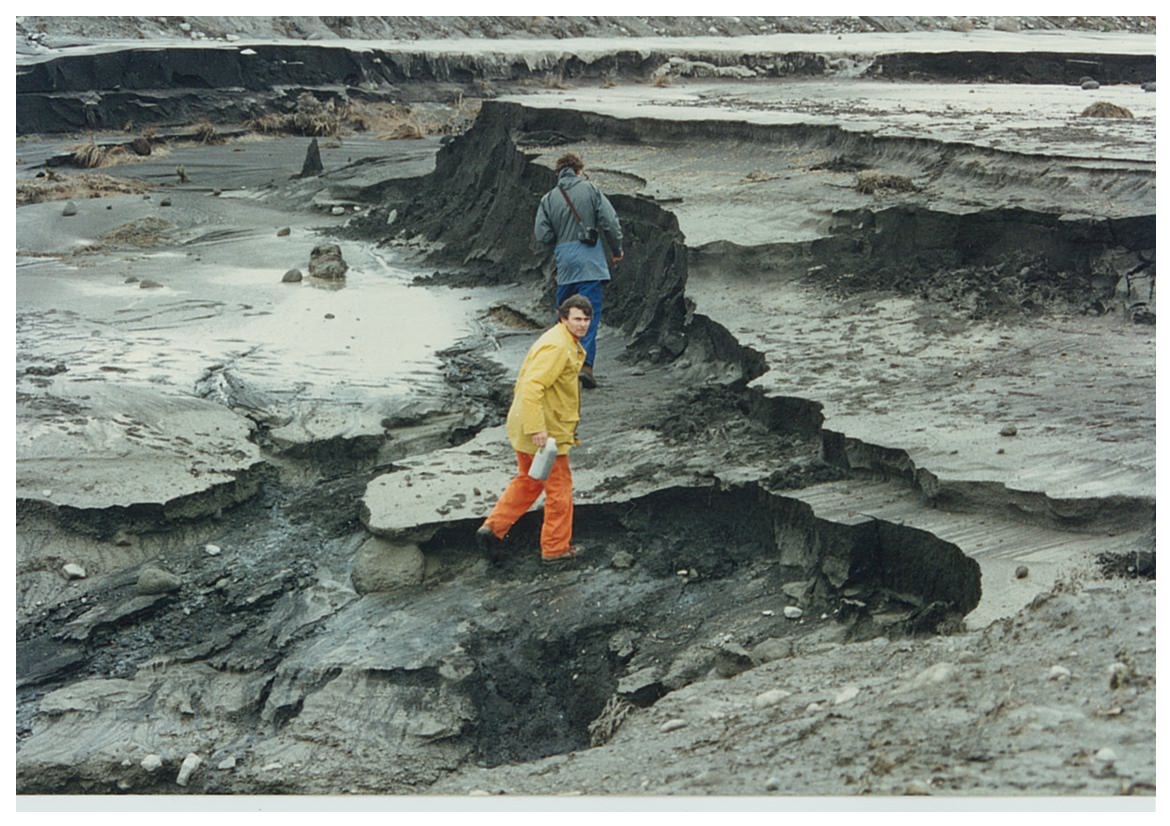IN the wake of the very high-profile launch of the WWF Save the Reef Campaign in June 2001, there was a flurry of newspaper articles. They uncritically reported the WWF claim that sediment was literally smothering the corals of the Great Barrier Reef – all the fault of farmers, whose activities needed to be better regulated. Many scientists were quoted in these reports, but never anyone from the Geophysical Laboratory at James Cook University. Yet this was the preeminent laboratory for research on physical oceanography, which includes the study of ocean tides, currents, waves, heat and light transfer and, of course, sediments – including their effects on coral reefs.
This laboratory had already been in operation for more than a decade, and was actively working with port authorities in Queensland, particularly to understand the effects of their operations on the natural environment. The laboratory was also involved in deep sea drilling operations to map and understand the overall nature of the crust beneath the ocean floor, with 22 international partners and a specialist drilling ship, the JOIDES Resolution.
Peter Ridd began with the laboratory in 1989, as one of the first four post-doctoral fellows employed there. During the 1990s his contemporaries, Piers Larcombe and Ken Woolfe, published several seminal papers on sediment transport in the Great Barrier Reef lagoon. These were scholarly and detailed assessments. They consistently concluded that the south-easterly trade winds, which blow for about nine months of the year, have a dominant influence on sediment transport. The wind and resulting waves produce a current that flows northward. This current traps sediments in north-facing bays and prevents it from reaching the middle and outer reefs.
Importantly, the work of Piers and Ken established that the amount of sediment in the water – its turbidity – is controlled by the size of the waves, not the volume of sediment. This fact means that any additional sediment coming down the rivers will have no effect on the muddiness of the waters of the reef lagoon. Both Ken and Piers were keen to explain to anyone prepared to listen that the main sediment issues were in rivers before they flowed to the sea.
Back in 2001, the findings of Ken and Piers, already published in international scientific journals, should have been juxtaposed against the naïve assessment promoted by Imogen Zethoven. But if the journalists actually did this, they wouldn’t have a story – presumably they wanted a story, and so they published the fake news from WWF and scientists arguably less well qualified to comment. The work of the Geophysical Laboratory has been mostly ignored over the last twenty years, not only by professional activists but also by governments in the formulation of policy responses.
The work of Peter Ridd was integral to the findings of Ken and Piers because he designed the equipment that they used to measure turbidity.
Ken died tragically on 1 December 1999.
The Geophysical Laboratory was unsuccessful at securing ongoing funding for Piers Larcombe. Peter Ridd was the only one of the four original post-doctoral fellows to survive several decades as an academic at James Cook University, being promoted to Professor in 2008 and becoming the Head of Physics in the same year.
Peter had broad interests in the area of marine geophysics and the Great Barrier Reef, and he published widely in scientific journals. He also led an effective consulting group for 25 years which earned millions of dollars for the University. Much of the consultancy work was monitoring dredging operations, while at the same time providing training for undergraduates. Anglų kalbos kursai https://igudu.lt/anglu-kalbos-kursai/ But Peter is perhaps best known for his inventions, specifically three instruments all built in that Laboratory at James Cook University: a self-cleaning Nephelometer used throughout Australia for dredging that has been copied by manufacturers worldwide; a Tilt Current Meter which has also been sold worldwide; and an optical instrument for measuring mine paste pipe wear that is being used by the mining industries in Australia and the USA.


***
This is the fourth post in a series on activism and the Great Barrier Reef, in advance of Peter Ridd arguing against his unfair dismissal by James Cook University in the Federal Court in Brisbane beginning on 12th November.


 Jennifer Marohasy BSc PhD is a critical thinker with expertise in the scientific method.
Jennifer Marohasy BSc PhD is a critical thinker with expertise in the scientific method.

Best of luck to Dr Peter Ridd in his upcoming legal battle. Let’s hope it doesn’t get bogged into labour law technicalities. If JCU’s decision had a hidden agenda, then it must be made public.
Thank you to Jennifer Marohasy for helping in this search for the truth.
Peter Ridd is a beacon of rationality in a debate dominated by political activism. He should be applauded, not attacked.
Thank you, Jennifer, for keeping us well informed about what is going on here. I don’t know much about Peter Ridd, but the circumstances of his dismissal by JCU should be alarming. However, I am confident we will not see much mention of it in the MSM.
Good luck Peter. Universities used to be places of science rather than politics. Sad to see them now ruled by left wing lunacy.
It is a truly scary thing when a Professor (Peter Ridd) is arguing for scientific integrity whilst James Cook University is supporting scientific positions that cannot be reproduced.
I vote for Peter’s true science against the Alarmist JCU’s support for FAKE science that cannot be reproduced.
We can only hope that the court understands the scientific method.
I find it very disturbing that our educational institutions are actively stopping freedoms to question ideologies of “What ever”. That people are being sacked/terminated for daring to question so called fact, so,why are these institutions being granted monies when they are NOT following the tenet of full encompassing education, meaning ALL sides of debate, not just the opinions of the campus “glitterati”.
Good luck Professor Peter Ridd in your fight for justice.
Thankyou Jennifer for bringing this case to us so we can offer our support.
Peter Ridd is a brave man with a history of standing up against a corrupt system. From the journalists that create demand for sensationalism to the acedemics who happily continue to perpetuate lies about the reef to supply sensational findings. I wish him a favourable outcome in the judicial system. I won’t hold my breath that a favourable outcome will prompt journalists to put the spotlight on shoddy reef research though.
Hopefully the truth will come out. Good luck to All that want the truth to be revealed. So glad I started following Jennifer’s posts. Keep it up
Peter, stay strong, fight well, and don’t let the legal bs get you down. We can’t thank you enough for standing on the side of right against so much might.
You and our friend, Bob Carter, are heroes. He would be proud of you, no doubt.
Love and Prayers,
Janet Thompson and Family
Good luck Peter. What you are fighting for is of great importance. The JCU’s interest in perpetuating a money-spinning narrative and “brand position” is evidently of more value to them than scholarship and genuine independent scientific enquiry.
There appears to be an epidemic of institutions of learning being transformed into institutions of indoctrination. It would appear that James Cook University has decided to take sides and go with the politically motivated perspective. Professor Ridd has established his credibility on this subject, but the university is apparently ready to ruin a mans life for his expression of informed, qualified opinion.
Good luck Peter Ridd. Keep up the good work.
Land based geologist. Sea experience sailor.
Good luck Peter and mate you will be around for a lot longer than the snouts in the green trough..
A most informative article Jennifer. The information on Peter Ridd’s engineering skill is not generally known.
This is terrifying. No doubt JCU is alarmed that Peter’s stand against the repressive academic group think has had so much world wide support. One suspects that the judge has found he needs to take urgent sick leave perhaps with some extra encouragment. Stay strong Peter. You have so much support for your unfailing integrity and honest approach in all your research
I am sure that we all look forward to JCU being exposed as disposable hypocrites and hopefully being demanded to publicly apologise to Peter and maybe add an apology to Bob Carter for good measure; in addition to a big payout to Peter Rudd for JCU injustice and the pain inflicted on these good men
Save Peter Ridd and show the World the unfair treatment he is receiving from petty, misguided interference.
Justice delayed is justice denied.
A last minute cancellation of the scheduled hearing when significant travel and accommodation costs had already been incurred, with no compelling reason offered and any future date left in limbo, does not inspire much confidence in the integrity of the legal system. Justice does not just need to be done, it also needs to be seen to be done and this situation deserves public protest.
Great work Jennifer
Geoffrey Robertson AO QC might be interested in conducting a hypothetical court case on this blog of yours, Jennifer Marohasy, to clear Peter Ridd’s name, and to perhaps sue his detractors.
Or another online court could perhaps be set up if needed or if more suitable.
Any suggestions? Ideas? Possible or not possible?